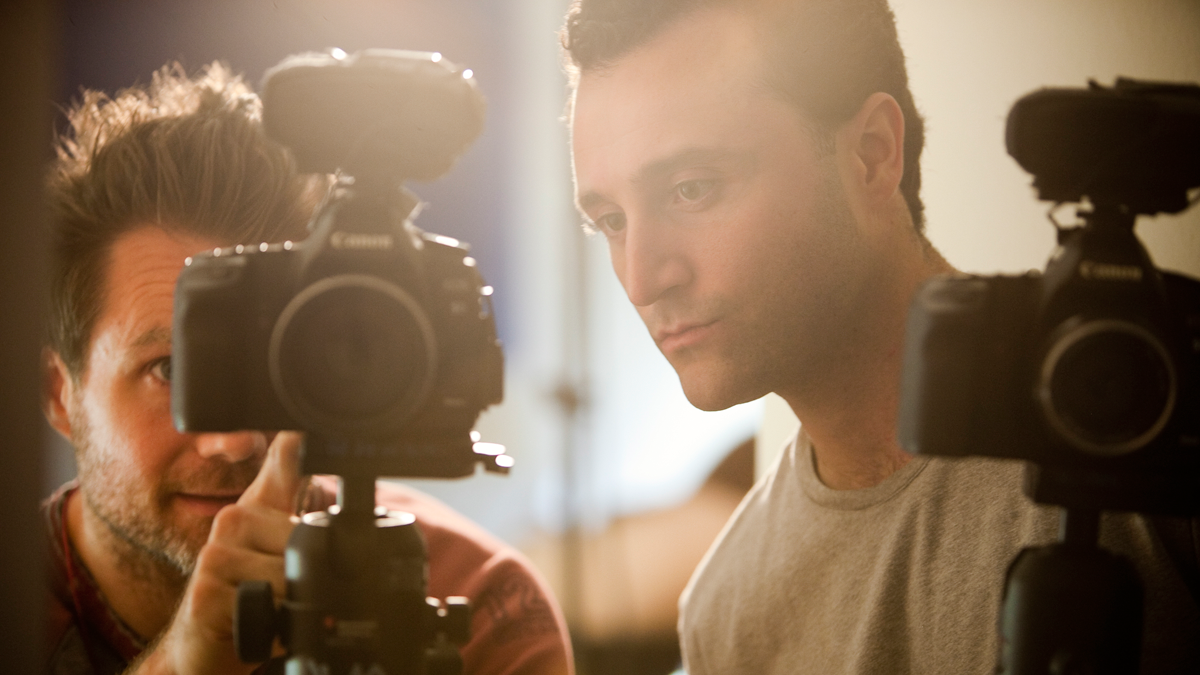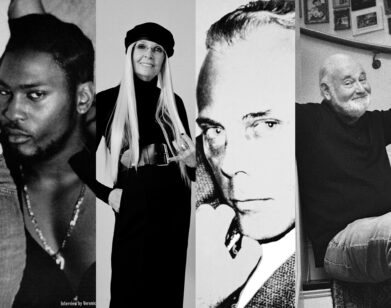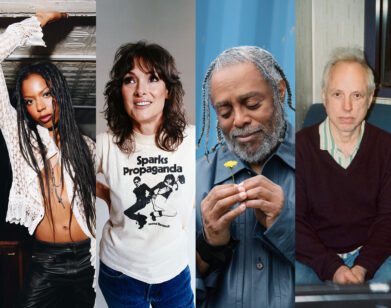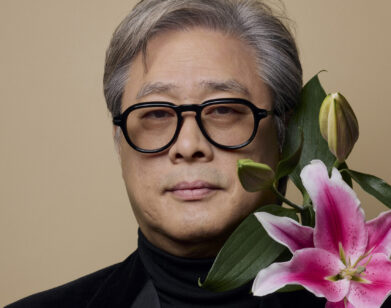J.C. Khoury’s Pill Street Blues

J.C. KHOURY ON SET OF THE PILL.
J.C. Khoury’s debut film The Pill has been racking up accolades on the indie circuit, including this year’s Audience Award at New York’s Gen Art Film Festival. It takes an atraditional tack on the story of boy meets girl. They have a lustful (unprotected) one-night stand. Boy becomes convinced he has impregnated girl, and decides to stick around for twelve hours to make sure she takes both doses of the morning-after pill.
Like a mash-up between Before Sunset and Meet The Parents, The Pill allows the romance between Fred (Noah Bean) and Mindy (Rachel Boston) to metamorphose through a series of socially awkward, unlikely, yet inadvertently hilarious events that all occur during their few hours together. We spoke with J.C. just after his New York premiere at the Big Apple Film Festival last weekend in Tribeca Cinemas.
MICHELLE ONG: So, did the idea for this film come from personal experience?
J.C. KHOURY: Absolutely. I was in the midst of having sex with my girlfriend when I realized the condom had broken. As a professional hypochondriac, I immediately assumed, “You’re pregnant, my life is over, we have to get the morning-after pill.” Funny thing is, you don’t think it’s more than one dose.
ONG: They don’t call it the morning-after pills.
KHOURY: Exactly, and right there I thought, what a great ticking clock—what a great device.
ONG: Right when the condom broke?
KHOURY: As soon as it split, boom, I wrote the screenplay right then and there. [laughs] I like making movies with a good hook and an extreme central character. Someone who is either highly eccentric or acts outside the ho-hum, mundane world.
ONG: That would be the female lead, Mindy? When she said he could finish without protection because she wanted them to feel close, I thought, “What a psychopath.” But at the same time, I know lots of girls do that.
KHOURY: I wanted you to relate to her, even if she was going places you’d never go.
ONG: Did you fund this film yourself?
KHOURY: It was all private equity. There were no foreign presales or anything like that. For my first film, all I cared about was story and performance. Someone’s first film shouldn’t be a producing exercise. I didn’t care about expensive sets or special effects. Rachel and Noah had great chemistry—about 20% of the dialogue is improvised.
ONG: You studied under Spike Lee while in NYU’s graduate film program. What was that like?
KHOURY: It was called the Master Class. Spike was great; he had amazing industry connections and would bring in guest lecturers. He brought in David Ayer, the writer of Training Day. What he imparted on me was: stop worrying about the budget, just go out and make the movie. “By any means necessary” was his mantra. You just have to be relentless to make it happen.
ONG: How long did it take you to shoot this film?
KHOURY: Fifteen days, during a heat wave last summer, all in my friends’ and parents’ apartments. Mindy’s apartment was my apartment. Oh, and a pharmacy.
ONG: I appreciated how appropriate each apartment was for every character.
KHOURY: So many movies about New Yorkers aren’t realistic about that. I hate when a waitress is living in a two-story loft.
ONG: What’s with all the weird characters Fred and Mindy meet? A belly dancer shaking her junk for a 12-year-old boy?
KHOURY: I dropped Fred into increasingly awkward social situations fueled by eccentric characters to raise the stakes and make him sweat. He has to stay with Mindy, but he’s dying to leave.
ONG: How much of Fred was a reflection of yourself?
KHOURY: His hypochondria. His inability to touch a toilet handle with his bare hands is totally me. I thought of myself while writing his character. I kept asking, “What would I do in this situation?”
ONG: I didn’t find the plot’s central conceit entirely convincing. After a one-night stand, most guys wouldn’t stick around, and a girl wouldn’t expect a relationship.
KHOURY: Everything that happened in the film was something I observed, experienced, or heard friends talk about. Fred would stick around if he didn’t trust her, which is why I set up his hypochondria and neurotic tics. But I think in every movie you’re allowed one leap of faith, especially in the romantic-comedy genre.
ONG: Why did you pick this genre for your first movie?
KHOURY: I love the character-driven dramedy world, and seeing how characters worm their ways out of sticky situations. Like in the films by the Duplass brothers or Woody Allen. It’s funny, I never thought of my film as a romantic comedy, but everyone else seems to think so. I didn’t want to do broad Hollywood humor, though. I wanted something authentic that would feel honest and real, instead of one-liners or witty banter. If you can mine comedy from awkward pauses and hidden agendas, the way Larry David did, it’s more rewarding in the long run. Another reason, of course, was budget. I can’t do a horror or action movie for so little money.
ONG: Which aspects of the rom-com tradition did you try to follow or break?
KHOURY: I inverted the genre a little bit. He’s genuinely trying to get away from her. Usually there’s a mutual attraction, rather than wanting to create distance.
ONG: Him lying to her becomes common.
KHOURY: The truth is that people lie to get what they want. They’re both right and they’re both wrong. There are no flat-out heroes or villains.
ONG: Except for Fred’s actual girlfriend, whom he cheats on with Mindy. She’s awful.
KHOURY: That character is based on the wife of a friend. He’s married to her and miserable.
ONG: It would have been interesting if she had been a “nice girl.” Then Fred would be thrust into a difficult moral situation.
KHOURY: No, then he’d be the asshole. Americans have a middle-class morality hanging over our heads. It wouldn’t make sense. But there was only a 24-hour period where he was technically cheating on her—does it count if you know you’re going to end it?
THE PILL WILL BE SHOWING AT MANHATTAN’S QUAD CINEMA STARTING DECEMBER 16.






